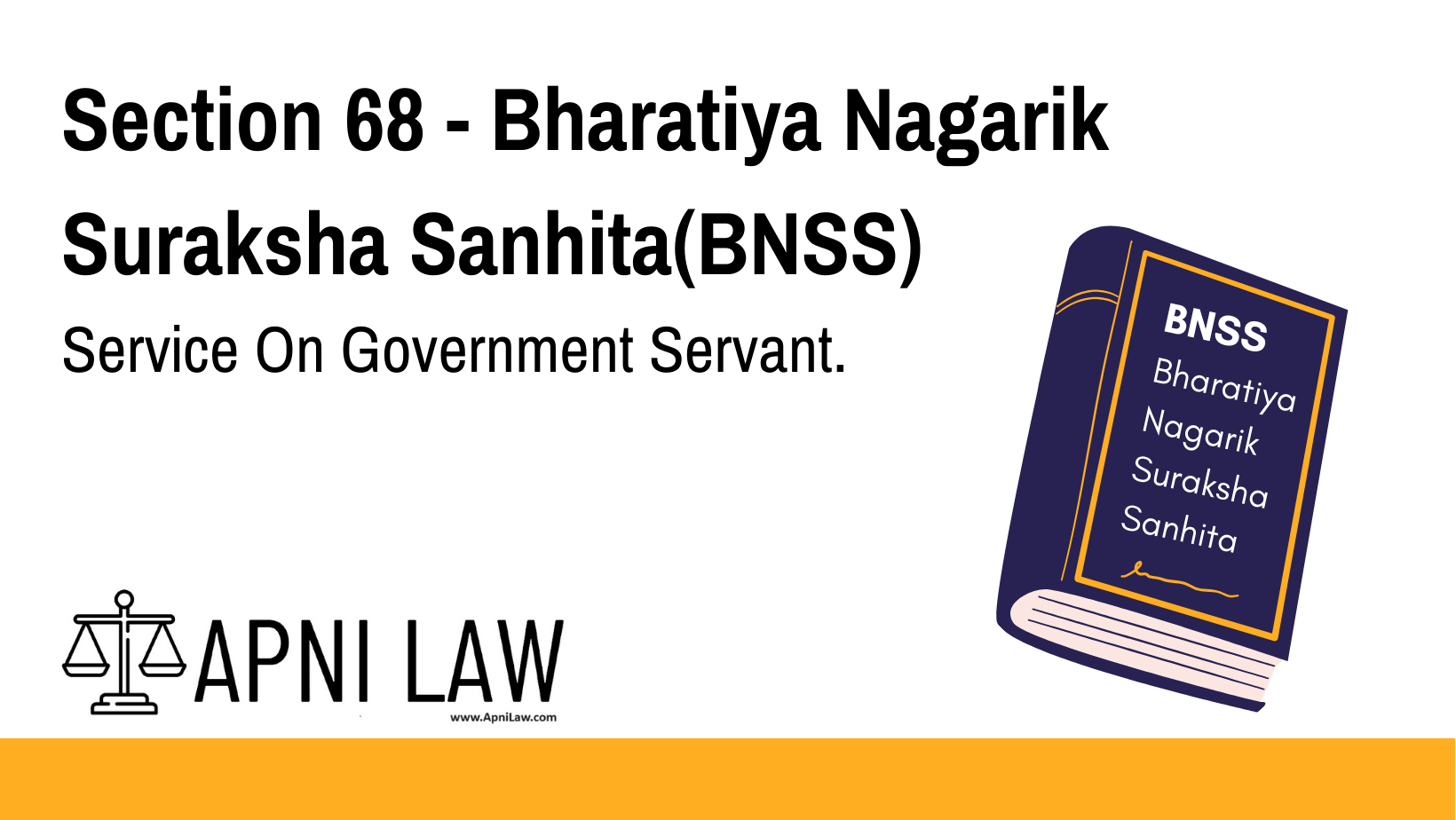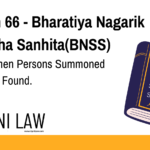Code: Section 68 BNSS
(1) Where the person summoned is in the active service of the Government, the
Court issuing the summons shall ordinarily send it in duplicate to the head of the office in
which such person is employed; and such head shall thereupon cause the summons to be
served in the manner provided by section 64, and shall return it to the Court under his
signature with the endorsement required by that section.
(2) Such signature shall be evidence of due service.
Explanation of Section 68 BNSS
Key Provisions
- Summons for Government Employees
- If a person is employed by the Government, the summons must be sent to their superior officer.
- This ensures that official duties are not unnecessarily disrupted.
- Role of the Head of the Office
- The head of the department/office is responsible for delivering the summons.
- The summons is served as per Section 64 BNSS (which covers direct delivery or affixation).
- The officer must return the summons with a signature.
- Proof of Service
- The signature of the head of the office serves as legal proof that the summons was served correctly.
Illustration of Section 68 BNSS
Example 1: Summons to a Police Officer in Service
A Delhi Court issues a summons for a police inspector in Mumbai.
- The summons is sent to the Commissioner of Police, Mumbai.
- The Commissioner ensures the inspector receives the summons.
- The Commissioner signs and returns the summons to the Delhi Court as proof of service.
Example 2: Summons to a Government Clerk
A Bangalore Court issues a summons for a clerk in the Income Tax Department, Chennai.
- The summons is sent to the Commissioner of Income Tax, Chennai.
- The Commissioner ensures the clerk receives it and acknowledges receipt.
- The summons is returned to the Bangalore Court with the Commissioner’s signature.
Common Questions and Answers on Section 68 BNSS
1. Why are government employees served through their head of office?
✅ To ensure official responsibilities are not disrupted and proper delivery is confirmed.
2. Can a government employee refuse a summons?
🚫 No, refusal to accept a summons may lead to legal consequences.
3. What happens if the head of the office fails to serve the summons?
✅ The Court may take action against the head of the office for non-compliance.
4. How is proof of service ensured?
✅ The head of the office must sign the summons and return it to the Court.
5. Does this apply to employees of private organizations?
🚫 No, private employees receive direct summons under Section 64 BNSS.
Conclusion
Section 68 BNSS ensures efficient service of summons to Government employees by:
✅ Routing the summons through their head of office,
✅ Ensuring proper documentation of service, and
✅ Minimizing disruptions in Government work.
This provision strengthens legal accountability while respecting official responsibilities.
For more legal insights, visit ApniLaw today! 🚀










